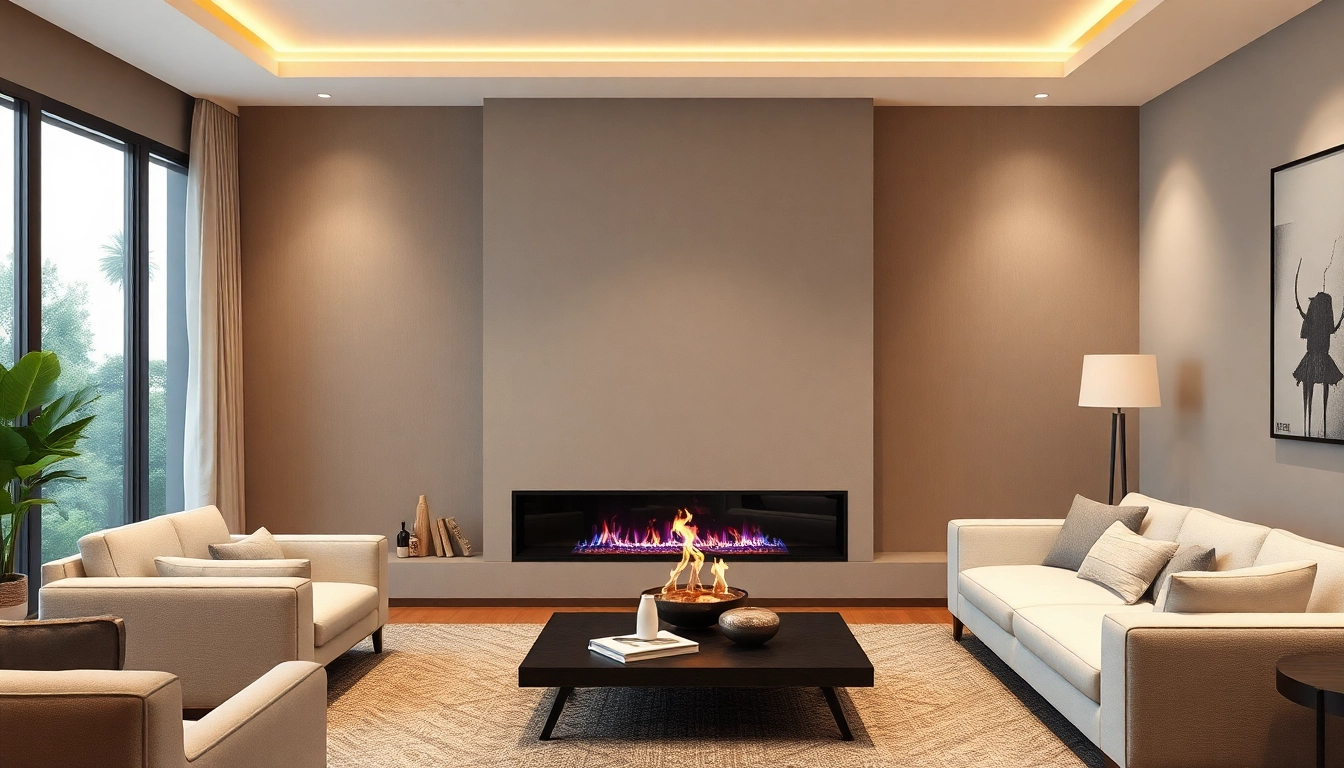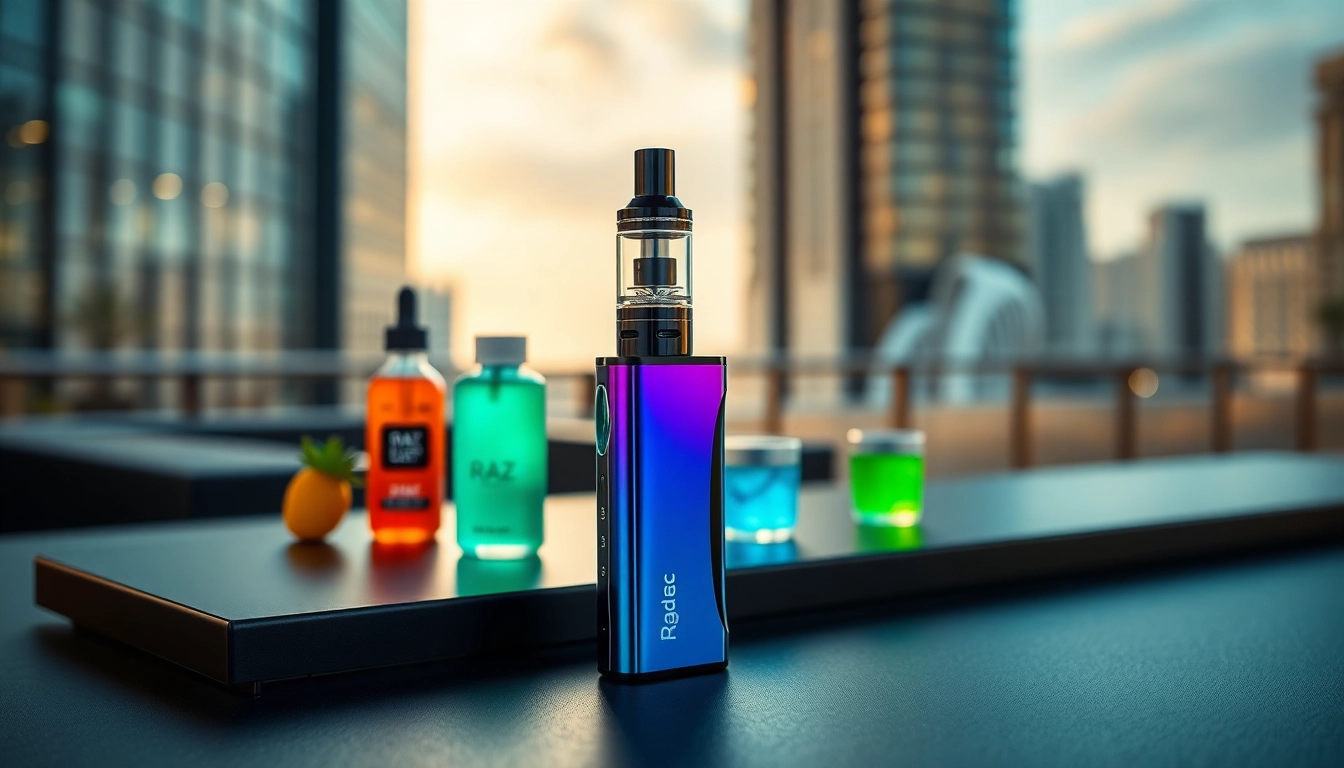
What is a Water Vapor Electric Fireplace?
A water vapor electric fireplace combines environmental sustainability with modern aesthetics to create mesmerizing flame illusions without the actual flame. Utilizing ultrasonic technology, these fireplaces generate mist that, when illuminated, mimics the appearance of realistic flames. This innovative approach allows fireplace enthusiasts to enjoy the ambiance of a fire without the associated heat or emissions typically generated by traditional fireplaces. For those looking to enhance their home atmosphere, a water vapor electric fireplace can be the ideal solution for a stylish yet functional addition to any space.
Understanding the Technology Behind Water Vapor Fireplaces
At the heart of water vapor fireplaces is the ultrasonic technology that creates water mist. This technology employs high-frequency sound waves that produce small droplets of water, transforming them into vapor. When heated, this vapor is then illuminated by LED lights, creating stunning flame effects that are both captivating and safe. Unlike traditional fireplaces requiring wood or gas, this tech-driven solution is energy-efficient and environmentally friendly.
Key Benefits of Water Vapor Electric Fireplaces
Water vapor electric fireplaces come with various benefits, making them an attractive option for many homeowners:
- Safety: Absence of actual flames means a significantly reduced risk of fire hazards. They are safe around children and pets.
- Zero Emissions: They do not produce harmful fumes or pollutants, maintaining indoor air quality.
- Energy Efficient: Operating on electricity, they can be more cost-effective than gas or wood-burning options in terms of energy usage.
- Versatile Design: Available in freestanding, wall-mounted, and insert styles, they can fit seamlessly into various home aesthetics.
- Year-Round Ambiance: These fireplaces can be enjoyed throughout the year without generating heat, making them perfect for decorative use.
How Do Water Vapor Fireplaces Work?
Water vapor fireplaces function through several key components:
- Water Reservoir: The fireplace contains a tank that holds water, which needs to be refilled periodically based on usage.
- Ultrasonic Plate: This device creates high-frequency vibrations that effectively turn the water into vapor, producing the ‘flames’ effect.
- Lighting System: LED lights illuminate the water vapor and provide the realistic flame illusion.
- Control System: Most models include remote controls or smart technology features, enabling user-friendly operation and customization of flame intensity.
Types of Water Vapor Electric Fireplaces
Freestanding Water Vapor Electric Fireplaces
Freestanding models offer flexibility in positioning and can be easily relocated within a room. These fireplaces can serve as focal points in living spaces and are available in various designs to complement any decor. They’re particularly beneficial for renters or individuals who desire a non-permanent fireplace solution.
Wall-Mounted Options for Modern Homes
For a sleek, contemporary look, wall-mounted water vapor fireplaces are an excellent choice. They save space and can be installed at heights that suit the desired aesthetic appeal. Ideal for modern interiors, they blend functionality with style while keeping the floor clear.
Water Vapor Fireplace Inserts for Existing Fireplaces
If a home already has an unused masonry fireplace, water vapor inserts provide a way to modernize that space without the need for a full renovation. These inserts can easily fit inside existing structures, transforming non-functional fireplaces into beautiful, efficient features that provide all the aesthetic benefits without the associated risks of traditional fires.
Installation and Maintenance
Easy Installation Steps for Your Water Vapor Fireplace
Installing a water vapor electric fireplace is generally straightforward, even for novice DIYers. Here are the basic steps to follow:
- Choose the Location: Identify the perfect spot in your home where the fireplace will be showcased and evaluate proximity to a power source.
- Assemble the Unit: Follow the manufacturer’s instructions for assembling any components, ensuring all parts are secure.
- Fill the Water Tank: Fill the reservoir with distilled water as recommended to maintain the functionality of the ultrasonic technology.
- Connect Power: Plug the unit into a nearby power outlet and ensure the connection is stable.
- Test the Fire Place: Turn on the fireplace and enjoy your new water vapor flames!
Maintenance Tips for Longevity
To ensure your water vapor electric fireplace remains in optimal condition, consider the following maintenance tips:
- Regularly clean the water reservoir to avoid any mineral buildup, especially if you’re using tap water.
- Replace filters (if applicable) according to the manufacturer’s guidelines to ensure the quality of vapor produced.
- Dust the exterior and components of the fireplace to maintain its appearance.
- Inspect connections and electrical components periodically for safety.
Common Issues and Solutions
Here are some common issues users may face along with practical solutions:
- Weak Flame Effect: This may indicate a low water level or a blocked filter. Make sure the tank is filled and the filter is cleaned or replaced.
- Unpleasant Odors: If the fireplace emits a foul smell, this could be due to impurities in the water. Always use distilled or purified water for the best results.
- Electrical Issues: If the unit doesn’t power on, check the power source and ensure the plug is securely connected. If issues persist, consult an electrician or the manufacturer.
Comparing Water Vapor Fireplaces to Traditional Options
Efficiency and Cost-Effectiveness
Water vapor electric fireplaces are designed to be energy-efficient. Unlike traditional wood-burning fireplaces, which require ongoing fuel costs and maintenance, water vapor models typically only incur modest electrical costs. Moreover, they contribute less to energy loss in the home compared to open fireplaces.
Environmental Impact and Safety
Unlike gas or wood-burning fireplaces that release smoke and emissions into the atmosphere, water vapor fireplaces operate cleanly. They do not require venting and can help reduce one’s carbon footprint while eliminating the need for burning fossil fuels. This enhanced safety and reduced environmental impact appeal to the eco-conscious consumer.
Realism of Flame Effects Compared to Gas and Electric
One of the primary advantages of water vapor fireplaces is their unparalleled realism. They produce a 3D flame effect, resulting from light refracting off vapor, making them appear more lifelike than traditional electric and gas models. They can provide an extremely intimate ambiance perfect for cozy evenings at home.
Choosing the Right Water Vapor Electric Fireplace for Your Home
Factors to Consider Before Purchase
Before choosing your ideal water vapor electric fireplace, consider the following factors:
- Size: Measure the space where you want to install the fireplace to ensure a good fit.
- Design: Choose a style that complements your existing decor, whether it’s modern, traditional, or minimalist.
- Features: Assess additional features such as remote controls, adjustable flames, and built-in humidifiers, which may enhance your experience.
- Maintenance Requirements: Some models may require more upkeep than others; be sure to understand what’s involved.
Top Models and Brands on the Market
Several companies are leading the charge in the water vapor fireplace market. Brands like Aquafire and Dimplex are notable for their innovative designs and technologies. They offer models with varying capabilities, from sleek electric wall mounts to free-standing units that prioritize ambiance.
Budgeting for Your Dream Fireplace
Like any home improvement, budgeting is crucial. Water vapor electric fireplaces can vary widely in price based on features, brand, and installation costs. Generally, you can expect to invest anywhere from a few hundred to several thousand dollars, depending on the model and any additional features you desire. Be sure to also factor in maintenance costs for long-term ownership.







